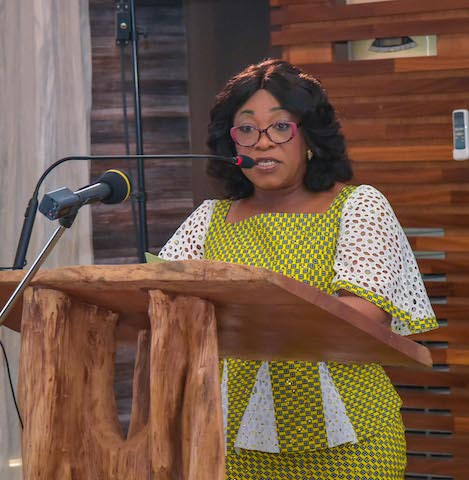
Ghana’s Minister for Foreign Affairs and Regional Integration, Shirley Ayorkor Botchway, has pledged Ghana’s support to end the age-long regional dispute between Morocco and Western Sahara.
According to the Minister, the government under President Akufo-Addo is committed to ensuring development in Morocco, hence Ghana’s interest to help find a lasting solution.
“I would like to reassure all concerned parties that, Ghana remains committed to ensuring a peaceful resolution of the Western Sahara conflict and stands ready to work with all in the region in achieving lasting and enduring peace,” she said.
She gave the assurance during a Ministerial Conference on the African Union Support to the United Nations Political Process on the Regional Dispute over the Sahara, Marrakech and Morocco.
She commended the former President of Germany, who is currently serving as the United Nations (UN) Special Envoy for Western Sahara, H.E. Mr Horst Koehler, describing his work as “remarkable” since he assumed office as UN Envoy for the disputed territory.
On behalf of Ghana, the Minister again commended the Government of Morocco for steps they have taken so far by engaging Heads of States to extend support to the “United Nations-led efforts.”
The meeting held in the city of Marrakech was attended by 31 other Africa countries including Ghana and Nigeria.
The meeting was a follow-up after a similar one was held in 2018, and Ghana was represented by a delegation from the Ministry of Foreign Affairs led by Mrs Botchway.
ABOUT THE CONFLICT
Western Sahara was colonized in 1884 by Spain and later became a province of Spain in 1934. But in 1975, Spain pulled out handing over the administration of the territory to Morocco and Mauritania.
This later triggered conflict and the Polisario Front with the support of Algeria and Libya led an insurgency against Morocco and Mauritania for 16 years. In 1979, Mauritania withdrew its forces from the disputed territory, and the Polisario Front and Morocco reached a ceasefire agreement in 1991.
The Polisario Front declared the establishment of the Sahrawi Arab Democratic Republic, which was not admitted into the United Nations, but won limited recognition by a number of other states.
The Polisario Front controls about 20–25% of the Western Sahara territory, as the Sahrawi Arab Democratic Republic (SADR), and claim sovereignty over the entire territory of Western Sahara, while Morocco controls and administers the rest of the disputed territory and calls these lands its Southern Provinces.
This protracted conflict led to the pulling out of Morocco from the predecessor of the AU, the Organisation of African Unity (OAU), in 1984, in protest at the body’s recognition of Western Sahara. There have been several attempts by the UN to address the problem, but now there seems to be an end in sight after the return of Morocco to the AU family 33 years on.
For the first time over decades, Mr Koehler was able to bring the protagonists together in Geneva, Switzerland to chart a new path and this culminated in the AU resolution 693 in Nouakchott, Mauritania in 2018.
The latest meeting was the one held in Marrakech on March 25th 2019, aimed at finding solutions and also to evaluate previous interventions.
Source: Ghana/Starrfm.com.gh/103.5FM/ Albert Kuzor



